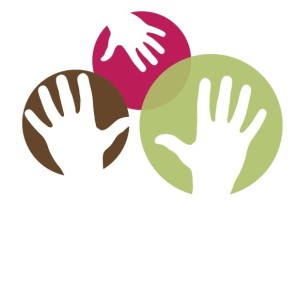“When we do things that are controlling, whether intentional or not, we are not going to get those long-term outcomes.“
~ Alfie Kohn
“As your kids grow they may forget what you said, but won’t forget how you made them feel.“
~ Kevin Heath

This Buzz brings you news of 3+ resources from OSEP and the Office for Civil Rights that collectively address corporal punishment in schools (including the March 24th Dear Colleague Letter) and the worrisome pattern of informally removing a student with disabilities because of behavior. We’re then pleased to connect you with 2 more disability-specific resources available in English and Spanish. And we close with news to share with your Native American families, especially youth from 18 to 24 years old.
Happy spring flowers to you,
The CPIR Team
_______________________
From the Feds | On Discipline and Informal Removals
Corporal Punishment in Schools Fact Sheet
From the Office for Civil Rights (OCR), issued Sept 2022, updated March 2023
The CRDC (Civil Rights Data Collection) defines corporal punishment as paddling, spanking, or other forms of physical punishment imposed on a child. The data reported in this factsheet is for K-12 students and includes data by sex, by race/ethnicity, and by state.
Dear Colleague Letter (March 24, 2023)
The Department issued this Dear Colleague Letter calling for the end to corporal punishment in schools. The letter reinforces the Department’s position that corporal punishment in schools should be replaced with evidence-based practices, such as implementing multi-tiered systems of support that create a safe and healthy school environment. The Department included specific recommendations for evidence-based practices to give students what they need to learn and grow.
Discipline Discussions | Informal Removals Matter
Valerie C. Williams, Director of OSEP, writes about the pattern of informally removing students with disabilities from school classrooms as a way to address disruptive behavior. The parents get a call from the school that their child has caused a disruption and must be picked up immediately to help their child “calm down.” This blog post from OSEP will connect you with the extensive 2022 federal guidance on discipline under IDEA, many parts of which are also available in Spanish. OSEP ends this blog post by asking CPIR (yes, us!) to answer 4 specific questions about disciplinary practices, including “What are possible next steps a parent can take if their child’s school repeatedly calls them to pick up their child from school due to their behavior?”
_______________________
Two Disabilities: Resources in English and Spanish
Bipolar Disorder in Teens and Young Adults: Know the Signs
(Also available in Spanish: Trastorno bipolar en adolescentes y adultos jóvenes: Conozca los signos)
Bipolar disorder is not the same as the typical ups and downs every kid goes through. The mood swings are more extreme and accompanied by changes in sleep, energy level, and the ability to think clearly. Learn the signs and symptoms.
Borderline Personality Disorder
(Also available in Spanish: Trastorno límite de la personalidad)
Learn more about the disorder, how it’s diagnosed, and how to find support.
Native Americans in Focus
Center Us: A Native Youth Survey
The Center for Native American Youth (CNAY) and Casey Family Programs are conducting this survey, which is intended to gather data to better understand the strength, resiliency, and priorities of Native American youth across the nation. Through this survey, Native youth have the opportunity to define their needs regarding leadership, education, cultural resources, mental health, civic engagement, and more. The target population is youth aged 18 – 24 only. Let your Native youth know so they can weigh in and share.
Educators Work to Preserve Native Languages
Today, fewer than 2,000 of the 600,000 official Cherokee Nation citizens speak Cherokee. In 100 years, will anyone? Learn how one educator is fighting its extinction and how preserving Native languages impacts the well-being and school performance of Native youth.
_______________________
 This eNewsletter from the CPIR is copyright-free.
This eNewsletter from the CPIR is copyright-free.
We encourage you to share it with others.
Center for Parent Information and Resources
c/o SPAN, Inc.
35 Halsey St., Fourth Floor
Newark, NJ 07102
https://www.parentcenterhub.org
Subscribe to the Buzz from the Hub.
See past issues of the Buzz.
____________________________________________________________
Publication of this eNewsletter is made possible through Cooperative Agreement H328R180005 between OSEP and the Statewide Parent Advocacy Network (SPAN). The contents do not necessarily reflect the views or policies of the Department of Education, nor does mention of trade names, commercial products, or organizations imply endorsement by the U.S. Government or by the Center for Parent Information and Resources.

